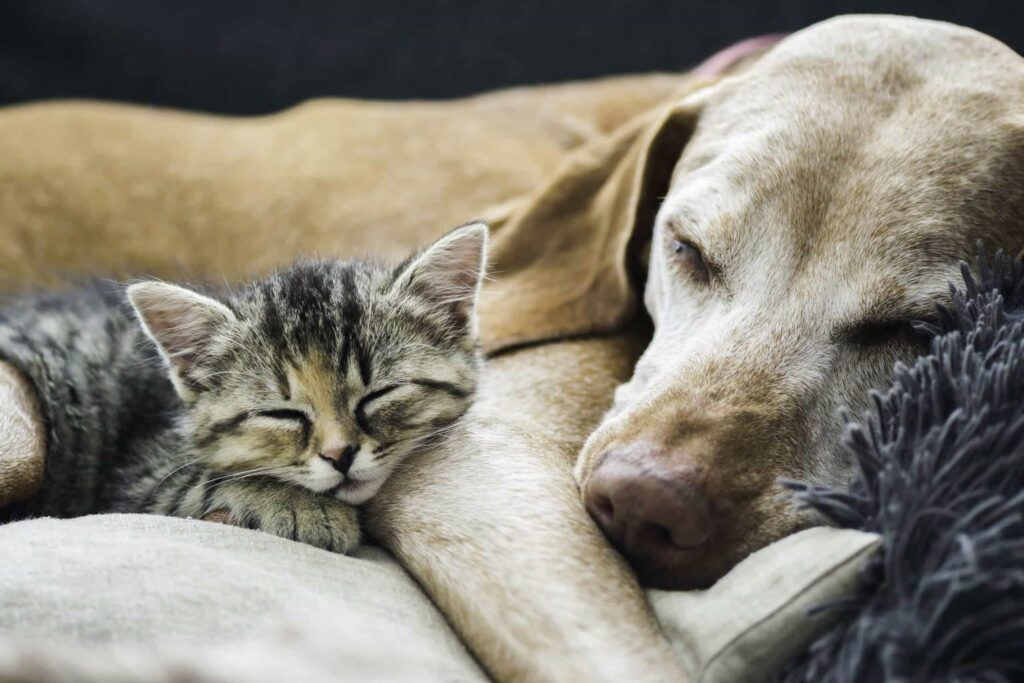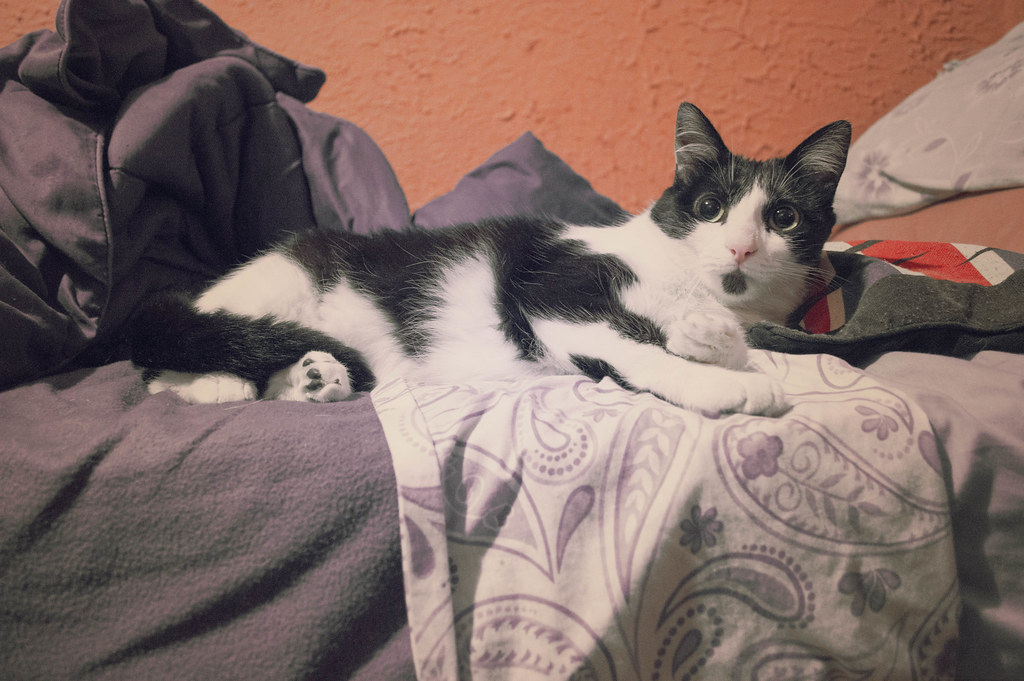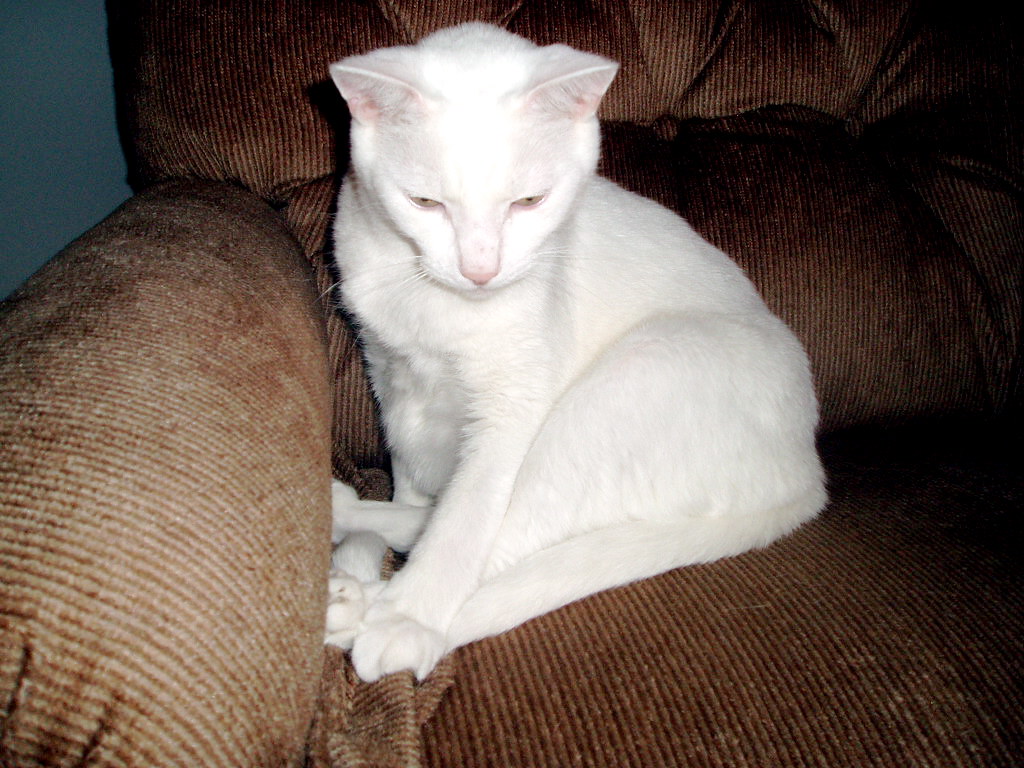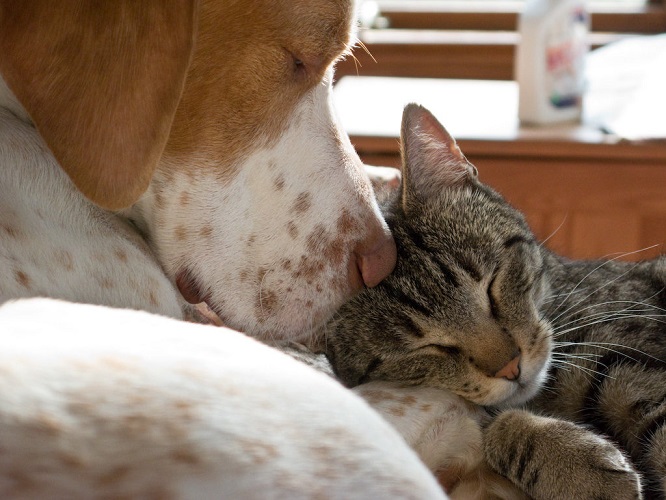How Long Can You Leave A Cat Alone ?

How Long Can You Leave A Cat Alone :- While cats are renowned for their independence, extended periods of solitude can lead to unhappiness. The question of “how long can you leave a cat alone” is a common concern for owners with busy schedules. It’s important to consider the well-being of your feline friend.
While cats may exhibit an air of independence, studies suggest that they can indeed experience loneliness, relying on their human companions for essential care. Understanding how long you can leave a cat alone is crucial, and our Brookhaven vets provide insights into ensuring your cat’s well-being and happiness during your absence.
Living with cats reveals their need for human interaction, debunking the myth of their aloofness. While cats don’t necessitate daily walks like dogs, their connection with their human companions is essential. There are occasions when leaving your adult cat overnight or longer becomes necessary, but the duration depends on factors like the cat’s habits, diet, and your environment. Cats on a dry food diet can often be left alone for 24-48 hours, provided they have access to fresh water. To ensure a stress-free absence, consult with your veterinarian and take necessary steps to address your cat’s needs.

How Long Can You Leave A Cat Alone ? How long can cats be left alone?
Many cats can tolerate being left alone for up to 8 hours, especially if you’re at work. With access to fresh water, some cats may manage alone for up to 24 hours. However, prolonged or frequent absences, such as full days or nights away, can be more challenging for cats and may lead to disruptions. It’s generally advisable not to leave your cat alone for extended periods to ensure their well-being and mental health.
Can I Leave My Cat at Home Alone While I’m at Work?
The good news is that most adult cats are generally fine when left alone for a typical workday, given their penchant for long hours of sleep. With up to 18 hours of sleep a day, your cat can easily handle your regular office hours or night shifts without significant concern. However, occasional situations may arise that require you to be away for longer periods. Here’s what you need to know about managing extended periods of separation from your feline friend.
Your Cat’s Age Matters When Leaving Them Alone
Young kittens (under four months old) and senior cats, especially those with health concerns, are more vulnerable and may require extra attention and care when left alone. Keep in mind their specific needs, and consider additional measures to ensure their well-being during your absence.
Young Cats & Kittens
Kittens, especially those under 4 months old, require frequent feeding, typically 3 or 4 times a day, until they are around 6 months old. Additionally, young cats tend to be more prone to getting into mischief when left unsupervised. It’s recommended not to leave kittens under 4 months old alone for more than 4 hours at a time. To help them adapt to being alone, gradually increase the time you spend away from home and seek advice from your vet on proper training.

Once your kitten reaches 6 months of age, if you anticipate an extended absence, consider having a friend or family member care for them at their home. Alternatively, arrange for someone to check in on your cat once or twice a day to ensure they are safe, well-fed, and receive some social interaction to alleviate boredom.
If your young cat needs care for more than 2-4 hours and personal arrangements are challenging, pet boarding can be an excellent solution. Many boarding facilities provide excellent care, including love and attention, for cats of all ages.
How Long Can You Leave A Cat Alone ? Senior Cats & Cats With Health Issues
Older cats, particularly seniors, can be sensitive to changes in their routines, which might induce stress, leading to an increased risk of health issues. Senior cats often require additional feedings or medications throughout the day. Due to these considerations, leaving a senior cat alone overnight might not be the best idea. Pet boarding facilities that offer round-the-clock care can be an excellent option for senior or unwell cats, providing them with the extra attention they need.
If your senior cat must stay home alone, consider having someone visit your house twice a day to check on them. Consult with your vet about the specific needs and limitations of your senior cat, as they are familiar with your cat’s health and can provide guidance on how long it’s safe to leave them alone.

Middle-Aged Cats
Under certain circumstances, it may be acceptable to leave your healthy, adult cat alone for 24-48 hours. However, this depends on various factors, including your cat’s temperament, your living environment, and whether they are accustomed to spending time alone. If your cat is going to be left alone for a day or two, ensure that your home’s temperature is comfortable, there is enough dry food available, and there is clean drinking water. Additionally, make sure the litter box is clean before you leave.
To prevent your cat from feeling lonely or engaging in mischief, consider taking them to a trusted pet boarding facility in your area. Pet boarding provides the assurance that your cat is safe and well cared for while you are away, giving you peace of mind.
Guideline for Leaving Cats and Kittens By Themselves
Cats may value their independence, but it doesn’t mean they are immune to loneliness and potential behavioral changes when left alone for extended periods. Despite their reputation for independence, domestic cats often prefer forming social groups, especially when there are ample resources available. In homes with multiple cats, maintaining cleanliness becomes a crucial factor when relying on a drop-in sitter or reducing the time they spend alone.

Cats with no medical or behavior issues can be left alone
Up to 8 hours: Cats of all ages will find 8 hours of alone time acceptable, provided they have enrichment activities and safe spaces for rest.
Up to 12 hours (overnight): Adult cats, excluding seniors, can be left overnight with amenities such as an automatic feeder, scratch posts, and an electronic litter changer.
Up to 24 hours: This is the maximum duration for most adult cats (excluding seniors) before they might experience feelings of loneliness or anxiety.
Not recommended: Over 24 hours. Cats left alone for more than 24 to 72 hours may start to feel concerned about their survival and become anxious. In such situations, it’s crucial to arrange for a cat sitter to stay for more than 30 minutes. Clearly communicate to the sitter that you want your cat to have some socialization, even if it means interacting from a distance.
Senior cats or those with behavioral or medical issues require adherence to their routines. While they might be fine being left alone during your workday, longer vacation trips could cause them stress. For older cats and those with medical concerns, consider booking twice-a-day drop-ins to monitor their safety and well-being.

Tips for Leaving Your Cat When You Need to be Away
Planning to be away from home? Here are some tips to ensure your cat stays safe during your absence:
1. Consult Your Vet: Speak with your vet to address any concerns they might have about leaving your cat alone. They can provide personalized advice based on your cat’s health.
2. Regular Check-ins: Arrange for someone to check on your cat once or twice a day. This ensures they are safe, have enough food and water, and receive some human interaction.
3. Climate Control: Check the weather and set your thermostat to maintain a comfortable temperature in your home.
4. Automated Feeder: Consider using an automated pet feeder to ration your cat’s food and keep it fresh for the duration of your absence.
5. Water Access: Ensure your cat has access to clean water in a spill-proof bowl. Cat water fountains can help keep water fresher for longer.
6. Litter Box Care: If your cat is particular about their litter box, leave two clean boxes with fresh litter.
7. Entertainment: Leave a radio or TV on to provide background noise and alleviate your cat’s potential boredom.
8. Pet Boarding: Explore local pet boarding facilities, providing a secure and interactive environment for your cat.

Note: This advice is informational and not a substitute for professional veterinary care. Consult your vet for personalized guidance on your pet’s well-being. Pet boarding at Brookhaven Animal Hospital offers a safe and caring environment for your cat. Contact us to learn more about cat boarding in Brookhaven.




